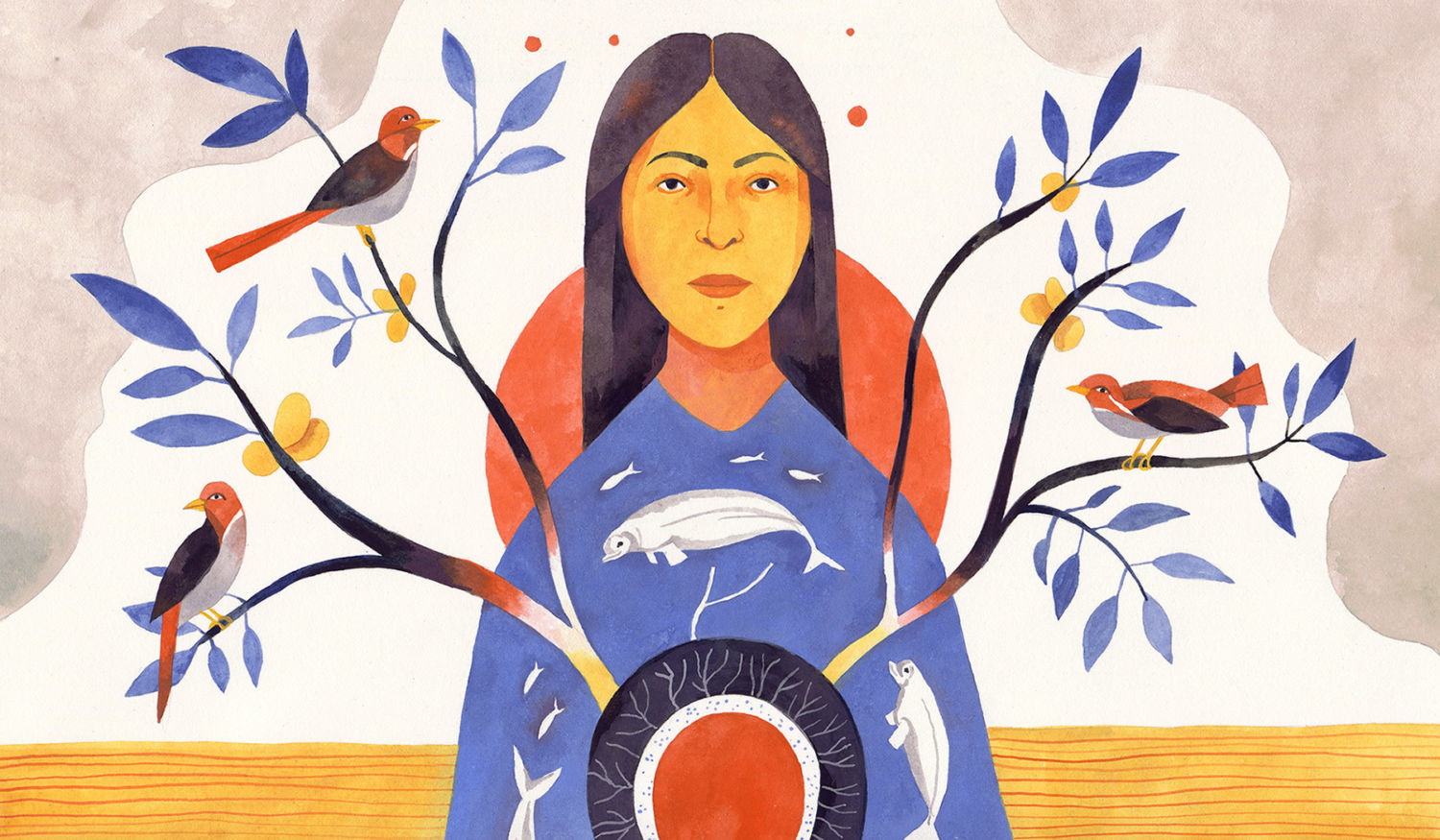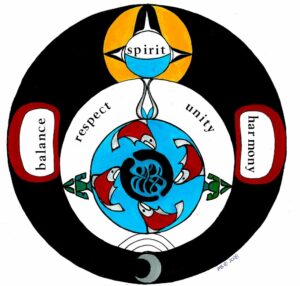Indigenous Perspective towards Sustainability

https://www.google.com/url?sa=i&url=https%3A%2F%2Fe360.yale.edu%2Ffeatures%2Fnative-knowledge-what-ecologists-are-learning-from-indigenous-people&psig=AOvVaw28KkcsGBcfBZ1iOj_8D-gW&ust=1613449991868000&source=images&cd=vfe&ved=0CAIQjRxqFwoTCPCvvOSH6-4CFQAAAAAdAAAAABAD
- Knowledge Expansion
Sustainability involves knowing about ways to live harmoniously with the natural world around us and protecting it from destruction. It also includes acknowledging and examining our own actions and contributions towards the preservation of natural resources by creating a balance among our competing needs (“What is sustainability and why is it important?”, n.d.). To understand the issue of sustainability in the contemporary world, it is important to learn from indigenous people and acquire first-hand knowledge and their enriched experiences about the land they originally belong to which can be utilized as a valuable resource to understand the synergetic relationship between people and the natural environment in a purposeful manner. In an interview with Jeanette Armstrong who belongs to Okanagan First Nation, he made a relevant point that sustainability is not theorized, it’s always practical. It can be expressed in traditional laws, practices and ceremonies and conveyed through actual teaching by giving clear instructions. Armstrong (2007) provided a very simple way of understanding sustainability;
“For this whole year, in order to be sustainable, you should try living without having to buy anything. You should try either growing everything that you’re going to eat, or trading for everything that you’re going to eat. If you can manage to do that, and if you can figure out a way to be able to do that in a given area, then you’ll know something about sustainability. You will have learned something about sustainability” (Native Perspectives on Sustainability: Jeannette Armstrong, 2007).
 Another interesting perspective is provided by Michael Blackstock (2009) by designing ‘Blue Ecology’ by intertwining western sciences with indigenous cultural knowledge to help people in making rational decisions and realize their social and cultural responsibilities.
Another interesting perspective is provided by Michael Blackstock (2009) by designing ‘Blue Ecology’ by intertwining western sciences with indigenous cultural knowledge to help people in making rational decisions and realize their social and cultural responsibilities.
Please find the attached link to find more information on the same.
A Pedagogical Lens
This inquiry-based project will be composed of a four-day workshop that is intended to develop an insightful perspective among the students of grade 11 towards the issue of sustainability. The aim is to challenge the thinking process of students to rethink and reflect their responsibility towards creating a sustainable environment by employing their learning into practice. Considering this, the teacher will involve the students in the process of inquiry by providing them with a platform to listen, discuss share their ideas and learnings with their peers who belong to diverse communities. In addition to this, students will be provided with an opportunity to watch short clips, interviews or videos, listen to podcasts and involve in some group discussion with the peers that will enhance their competencies to think critically about the issue of sustainability. Furthermore, students will also be encouraged to share knowledge and the associated cultural practices and beliefs from their own communities. The idea is to create a collaborative network of learning that allows students to draw lessons from their ancestors to make ethical decisions in the future. Thus, it is important for the students to understand “What causes events to happen? What are the consequences”? (“Episode 02: Lindsay Gibson – FOOKNCONVERSATION,” n.d.)
With reference to this workshop, the role and responsibility of the educator increases in terms of finding the relevant sources of knowledge to guide them with their inquiry process. Apart from this, the educator needs to be thoughtful while facilitating students as there are some similarities and differences that need to carefully look into while addressing such critical issues. Moreover, there is a wide variety of resources available online that requires the educators to think and select appropriate ones that can be useful for the learners not just to gain knowledge but also nurture some abilities that are essential components of an inquiry-based project which is inclusive of problem-solving, active construction of knowledge, social interactions and a balance between emotion and cognition (“What is learning?,” n.d.).
Connections with the BC Curriculum
This inquiry-based project is inspired by teaching Environmental Sciences in BC Curriculum for grade 11. The series of virtual workshops emphasized the three major set of core competencies delineated in the BC Curriculum which include communication, thinking, personal and social competencies. The involvement of the students in these constructive sessions will facilitate them to communicate their ideas, broaden their scope of thinking by valuing diverse opinions and enhance their sense of belongingness to their own communities as well as with the society as a whole. However, the big ideas related to this topic are the interaction of human beings with the environment, the implications of human activities on the environment and the application of indigenous knowledge to achieve the goal of sustainability. With reference to this inquiry-based project, the following are the curricular competencies that students will be able to demonstrate:
- Questioning and Predicting: The activities within this project will stimulate inquisitiveness among students to seek more knowledge. Furthermore, they will reflect upon their own understanding of the issue and question the knowledge they already have at the personal, global and local level. Apart from this, they will be able to predict the outcomes of human actions in relation to sustainability.
- Processing and Analyzing Information: Students will be expected to process the chunks of information that they will gather from these constructive sessions and analyze the same to understand the issue of sustainability within the communities they are a part of.
- Evaluating: Students will be able to assess and evaluate the varied perspectives by engaging in multiple interactions with peers.
- Applying and Innovating: Students will be encouraged to apply the conceptual knowledge to design the problems that emerge in the real world. Moreover, they will work collaboratively to find innovative solutions at the global and local level by incorporating inquiry.
- Communicating: Students will be provided with an opportunity to involved in a shared dialogue with other people and represent their ideas through multiple representations on a digital platform.
Keeping in line with the first peoples principles for learning, the objective is to help students understand and recognize the role of indigenous knowledge as a crucial component of learning (“First Peoples principles of learning,” 2020).